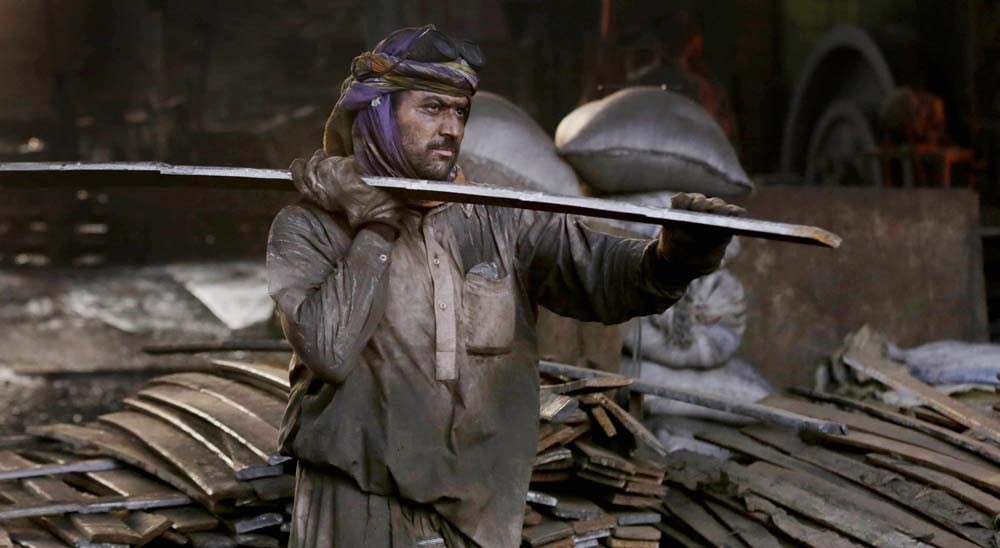
The existing set of labour laws ignores majority of workers in informal sector

Pakistan was awarded GSP Plus status last year that enables the country to export more than US$1 billion worth of products to the international markets. Only the textile industry would earn profits of more than Rs1 trillion per year. European Union trade concessions will benefit the three major factors including country’s largest manufacturers and exporters, government and the workers/laborers.
The ten year GSP Plus status for Pakistan by the European Union is a blessing for the country. It will revive the industrial sector of Pakistan and create thousands of new jobs for the people. However, there are many challenges being faced by Pakistan to fully benefit from the GSP Plus status. But with dedication and unflinching resolve on part of the government, these problems could be easily solved.
Moreover, the duty-free privileges are going to attract many local and foreign investors towards the industrial sector of Pakistan. The country is sure to become a centre of investment for foreign investors. They look for such opportunities where they could export their goods duty-free. More than 600 kinds of goods can be exported duty-free after receiving this status. It has the potential to turn the country’s economic graph on an ascending curve.
However, having explained all the dividends that Pakistan is expected to reap with its GSP Plus status, there are certainly many problems in fully utilising the trading benefits. Pakistan has to face some tough challenges both at home and in the European market. The problems it faces at home are more challenging. The status necessitates addressing and implementing 27 UN Conventions. In this regard, the EU has devised a monitoring mechanism and it is expected of the beneficiary countries to fully cooperate in providing information, whereby the EU would gauge the satisfactory implementation of these Conventions, failing which, the country could face withdrawal of GSP Plus status.
The 27 UN Conventions mainly include addressing the issues of governance and labour laws/rights, gender rights and equality, protection of the environment, human rights, climate change, convention on the elimination of all forms of discrimination against women, convention against torture and other cruel, inhuman or degrading treatment or punishment, abolition of forced labour convention, equal remuneration for men and women workers for work of equal value, convention and freedom of association and protection of the right to organise. Majority of these conventions relates to a large number of workers in informal sector, and particularly women workers that comprise more than half of the labour force of this sector.
An estimated 50 million out of 181 million are currently living below the poverty line in Pakistan and the poverty level is rising sharply day by day. Unemployment rate in Pakistan reported in the Labour Force Survey 2007 released by Federal Bureau of Statistics (FBS) was 8.3 per cent. Whereas it is important to note that 70-80 per cent of a total working population is employed in the informal sector. More than 50 per cent of these are women.
The least visible informal workers -- majority of them women -- who sell or produce goods from their homes include garment makers, embroiderers, incense-stick rollers, cigarette-rollers, paper bag makers, kite makers, hair band makers, food processors, football stitching, bangle-making embroidery, carpet weaving and handlooms, woodwork and other handicrafts, dates cleaning and packing, prawn peeling and packing and pottery-making.
The number and volume of subletting the factory work to the informal sector/home-based segment through middle-men and contractors has been continually increasing. Factory owners employ very few workers who are mostly on contract/daily wages basis. Consequently, they are able to put aside the expenses on electricity and water, social security and EOBI, salaries and bonuses, transport and taxes and other overheads. Moreover, due to this act, they are free from the issues of trade unions’ activities, factory inspections and other legal obligations.
The existing set of labour laws in Pakistan applicable to the workers in formal economy almost ignores majority of informal workers. Neither workers in the agriculture sector nor in numerous informal economy (sector) are covered by the existing laws. Moreover the informal sectors’ workers are not considered ‘Workers’ in the official figures. They are not covered by the labour laws, including Payment of Wages Act, 1936, West Pakistan Shops and Establishment Act, 1969, Industrial Relations Ordinance, 1969 and Maternity Benefits Ordinance and Employers Old Age Benefit Act, 1973.
Informal workers suffer directly and indirectly from shrinking consumption and declining demand crucial to their livelihoods. Informal wage workers are often the first to be laid off.
The Women Empowerment Package 2012 included the women workers of informal sector of economy and a policy for them was put on table for legislation. The women workers of this sector, despite the ILO Convention 177 on Home Work (1996), UN convention CEDAW, the Kathmandu Declaration (2000), SAARC Charter of Demands and various other agreements, remain unidentified, invisible, unrecognized, discriminated and voiceless.